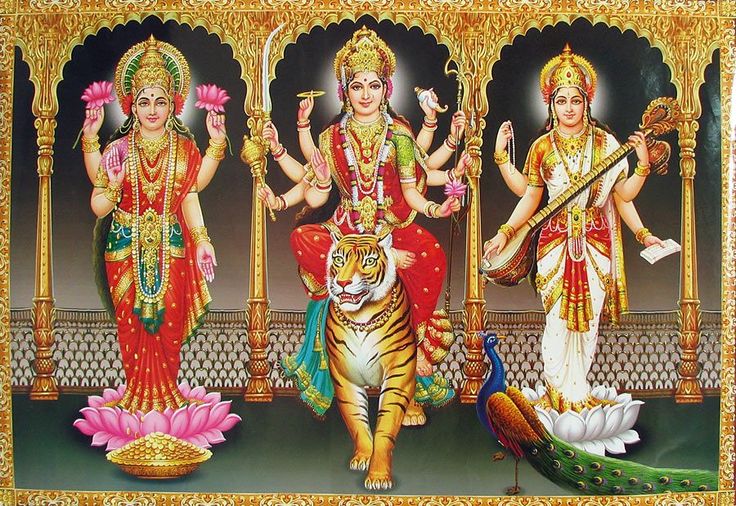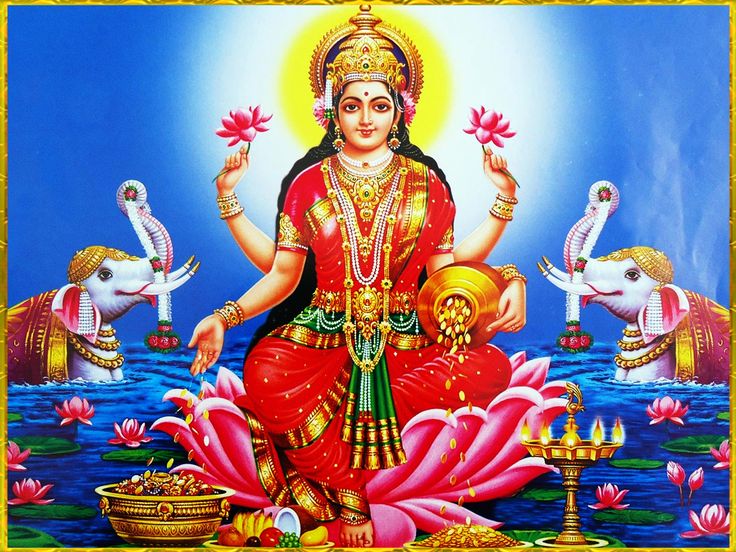Meaning of Devi
Sanskrit Roots
Devi, a name revered across India and beyond, carries profound spiritual and cultural significance. Its roots lie deep within Sanskrit, one of the oldest languages in the world.
In Sanskrit, “devi” means “goddess,” “divine feminine,” or “supreme being.” It is a noun that denotes a powerful, benevolent female deity who embodies strength, beauty, and grace.
The word “devi” itself can be broken down further into two components: “div”, which means “to shine” or “to illuminate,” and the suffix “i” , indicating a feminine noun. Therefore, Devi literally translates to “the shining one,” suggesting her radiant nature and divine brilliance.
The concept of Devi is central to Hinduism, representing the primordial cosmic energy known as Shakti. She is seen as the source of creation, preservation, and destruction, embodying the dynamic forces that govern the universe.
Devi’s influence extends beyond religious contexts. Her name has permeated various aspects of Indian culture, appearing in literature, art, music, and everyday life. From ancient epics like the Mahabharata to contemporary Bollywood films, Devi serves as a source of inspiration and a symbol of female empowerment.
The Sanskrit roots of “devi” have also influenced the English language, contributing to words such as “divine,” “deity,” and “devotion.” These terms reflect the enduring legacy of Devi’s presence in human consciousness.
Feminine Divine
Devi, a Sanskrit word meaning “divine” or “goddess,” represents the primordial feminine principle in Hinduism and related traditions. It transcends specific deities, embodying the universal energy and power inherent in all female forms.
The concept of Devi is deeply rooted in ancient Vedic texts, where she appears as Aditi, the mother goddess who embodies boundless potential and cosmic order. Throughout history, Devi’s manifestations have evolved, taking on diverse forms such as Durga, Parvati, Kali, Lakshmi, and Saraswati, each representing unique aspects of feminine power—protection, nurturing, creation, wealth, and knowledge.
Devi is not merely a female deity but the personification of cosmic energy (Shakti) that drives all creation. She is both the source and sustainer of life, the embodiment of both fierce power and gentle compassion.
The worship of Devi has played a significant role in shaping Hindu culture and spirituality. Devi temples are prominent across India, serving as centers for prayer, devotion, and celebration of feminine energy. The Devi Mahatmya, a sacred text dedicated to her glory, narrates her triumphs over evil forces and affirms her supreme power.
Devi’s significance extends beyond Hinduism, influencing other religions and philosophies in South Asia. Her principles of female divinity, cosmic energy, and the interplay of strength and compassion continue to resonate with seekers across cultures and traditions.
Origin of the Name
Hindu Mythology
Devi is a Sanskrit word that means “goddess” or “divine feminine.” It’s a widely revered term in Hinduism, representing the supreme female principle in the universe.
The name Devi has deep roots in ancient Indian scriptures and mythology. One of its primary associations is with Durga, a fierce warrior goddess known for her strength, courage, and ability to protect devotees from evil. Durga embodies the power of the divine feminine and is often depicted wielding various weapons.
Devi is also closely linked to other prominent goddesses in Hinduism, such as Lakshmi, who represents prosperity and wealth, and Saraswati, who symbolizes knowledge, arts, and creativity. These goddesses are collectively known as the “Trimurti” or “Trinity” of the female divine, highlighting the multifaceted nature of femininity in Hindu thought.
The concept of Devi is central to many Hindu rituals, festivals, and philosophical schools. It signifies the inherent divinity within all women and emphasizes the importance of honoring and respecting the feminine principle in life.
Moreover, the name Devi transcends religious boundaries and has found its place in various cultural contexts across India and beyond. It’s a popular choice for baby girls, signifying purity, grace, and divine blessings.
Regional Variations
The name Devi is of Sanskrit origin, derived from the word “devī,” which means “goddess” or “divine female.” It’s a widely revered name across India and other parts of South Asia, deeply rooted in Hindu mythology and religion.
In Hinduism, Devi is one of the principal goddesses, representing divine feminine energy and power. She encompasses various forms and aspects, including Durga, Kali, Parvati, and Lakshmi, each embodying different attributes and qualities.
The name Devi signifies beauty, grace, strength, wisdom, and motherhood. It’s often used as a title for female deities or to denote a woman of high status or spiritual significance.
Regional variations in English pronunciation of the name Devi exist due to the influence of different accents and dialects. Some common pronunciations include “DEH-vee,” “DEE-vee,” and “DEV-ee.”
While the name Devi is primarily associated with India, its popularity has spread globally due to cultural exchange and migration. Today, it’s a recognizable and cherished name in many countries.
Beyond its religious connotations, Devi also carries a sense of elegance, sophistication, and empowerment. It’s a name that evokes strength, resilience, and the divine feminine spirit.
Historical Significance
Vedic Period
The Vedic period, spanning roughly from 1500 to 500 BCE, holds profound historical significance for understanding the origins and development of Hinduism, Indian culture, and society.
This era witnessed the composition and preservation of the Vedas, a collection of sacred hymns, prayers, rituals, and philosophical insights that form the foundational texts of Hinduism. These texts offer invaluable glimpses into the beliefs, practices, and social structures of ancient India.
The Vedic period is characterized by a complex pantheon of deities, with Indra, Agni, and Surya being among the most prominent. The Rigveda, the oldest of the Vedas, primarily focuses on these deities, their attributes, and their roles in maintaining cosmic order.
Social organization during this period was largely based on the caste system, which divided society into four main categories: Brahmins (priests), Kshatriyas (warriors and rulers), Vaishyas (merchants and traders), and Shudras (laborers). This hierarchical structure influenced various aspects of life, including occupation, social interaction, and religious practices.
Vedic rituals played a central role in daily life, marking important events such as births, marriages, and deaths. These elaborate ceremonies involved offerings to the gods, chanting hymns, and performing specific actions believed to ensure prosperity, well-being, and spiritual fulfillment.
The Vedic period also saw the emergence of early philosophical ideas, with concepts like karma, reincarnation, and moksha (liberation) gradually taking shape. The Upanishads, a collection of texts composed later during this period, explore these metaphysical themes in depth.
Despite its historical significance, the Vedic period remains subject to ongoing debate and interpretation among scholars. Archaeological discoveries, linguistic analyses, and textual studies continue to shed light on various aspects of this complex and fascinating era in Indian history.
Medieval Era
The Medieval Era, spanning roughly from the 5th to the 15th centuries, holds immense historical significance for shaping the world we know today.
This period witnessed profound transformations in Europe, Asia, and Africa, leaving an indelible mark on religion, politics, culture, and technology.
In Europe, the fall of the Roman Empire ushered in a new era characterized by decentralized power, the rise of feudalism, and the emergence of independent kingdoms.
The Catholic Church wielded immense influence, providing spiritual guidance, social order, and intellectual stimulation through monasteries and universities.
Gothic architecture, with its soaring cathedrals and intricate designs, became a defining feature of the era, symbolizing both religious devotion and human ingenuity.
Meanwhile, the Crusades, a series of holy wars aimed at reclaiming the Holy Land from Muslim control, had a profound impact on European society.
They sparked cultural exchanges between East and West, but also fueled religious intolerance and conflict.
The Black Death, a devastating pandemic that swept across Europe in the mid-14th century, reshaped demographics and social structures, leaving lasting scars on the continent’s population and economy.
In Asia, the Medieval Era witnessed the flourishing of powerful empires like the Tang, Song, and Yuan dynasties in China, as well as the Islamic Golden Age in the Middle East.
These civilizations made significant advancements in science, technology, literature, and art, leaving behind a rich legacy that influenced subsequent generations.
In Africa, kingdoms such as Ghana, Mali, and Songhai rose to prominence, controlling important trade routes across the Sahara Desert and accumulating vast wealth through gold and salt.
These empires fostered cultural exchange and intellectual development, contributing significantly to the African world’s rich heritage.
The Medieval Era was a period of profound change and transformation, laying the groundwork for the Renaissance, the Reformation, and the Age of Exploration that would follow in subsequent centuries.
Its impact on global history is undeniable, shaping our understanding of politics, religion, culture, and technology.
- Meaning, Origin And History Of The Name Étienne - October 22, 2025
- Meaning, Origin And History Of The Name Živa - October 22, 2025
- Meaning, Origin And History Of The Name Łukasz - October 22, 2025


